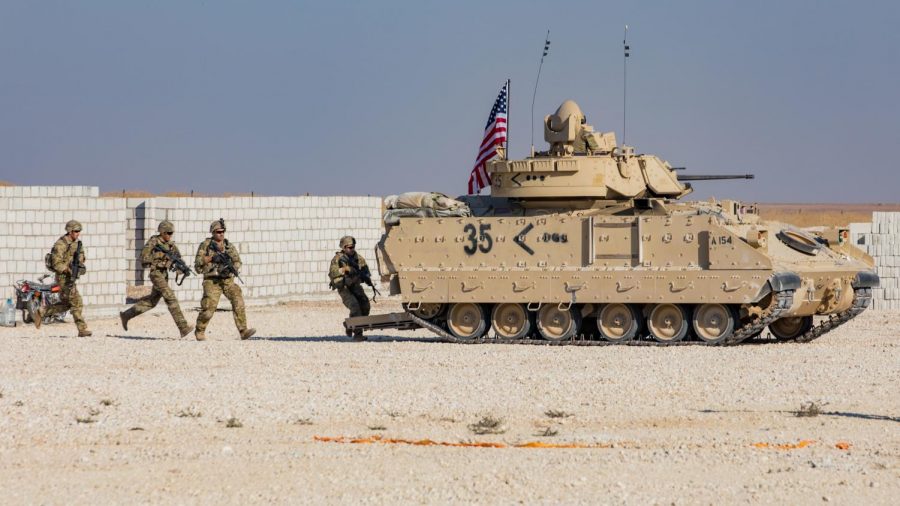Biden’s first airstrike against insurgent forces in Syria escalates tensions in the region, supporters upset with decision
Creative Commons/ National Guard
Almost two months into President Biden’s term, he approved an airstrike in Syria. Many Biden supporters we upset to hear of this decision.
On Thurs. Feb. 25, President Biden authorized an airstrike on a militia group in Syria near the Iraqi border. This marks his first military action taken in the Middle East since becoming president. The airstrike was labeled as a “retaliatory attack” in response to a rocket attack on a US base on Feb. 15.
In a Feb. 25 press release, the Pentagon stated that one of the purposes of the strike was to send “an unambiguous message: President Biden will act to protect American and Coalition personnel. At the same time, we have acted in a deliberate manner that aims to de-escalate the overall situation in both eastern Syria and Iraq.”
The Pentagon also stated that the airstrike target was a number of buildings used as a border control point for several Iranian backed militias. The two listed were Kata’ib Hezbollah (KH) and Kata’ib Sayyid al-Shuhada (KSS), however it is possible there were unnamed groups involved.
One group which was not mentioned in the press release was Awliya al Dam (Guardian of the Blood), the group that claimed responsibility for the Feb. 15 attack on U.S. and coalition forces. This strike was a response to that attack. Very little is known about Awliya al Dam, including where they receive their funding.
There is no confirmed number on how many people were killed in the air strike. The lowest estimates have it at one insurgent and several injured, while other reports have numbers as high as 22 insurgents killed.
Selin Guner, Ph.D., a global studies professor here at St. Edward’s, is an expert on Middle Eastern relations. She discussed what this strike could mean for the future of American relations with Iran and Syria.
“I think the biggest mistake the Biden administration would make is to turn Iraq/Syria into a proxy war with Iran,” Guner said. “If Biden wants to re-engage with Iran, this should be through diplomatic means.”
In terms of de escalating this situation, Guner says “it really depends on whether the Biden administration will take a different stance than Obama and Trump. If [Biden] continues with strikes, there will be no difference and the deadlock will remain. Diplomacy does not mean defeat. You can gain more through good diplomacy than any war could win. Biden needs to deploy good diplomats, not good bombs and drones. History has shown that good diplomats and good diplomacy skills can make the biggest wins in world politics,” Guner said.
It appears that even though the intent of the strikes was to de-escalate, the U.S. is already seeing retaliation. Reports came out of another rocket attack on an Iraqi military base where U.S. troops were stationed March 3. There appears to be growing tension between all parties in the region, but it is still too soon to say how Biden’s military action in the Middle East will play out during his presidency.







